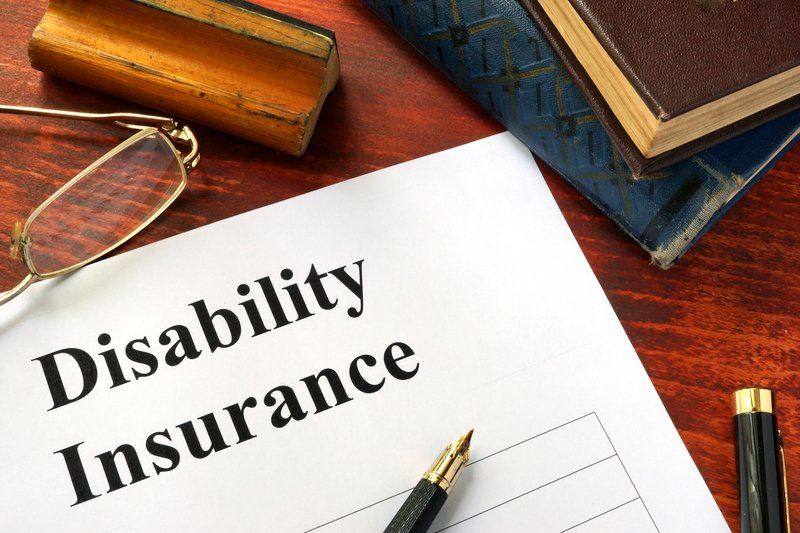Iowa, Illinois, Wisconsin | 563-582-5834
Blog Post
Blog
Pitfalls of Purchasing Travel Insurance
J. Allen Wallis III, CIC, CPIA, AIS, CRIS, CLCS • Sep 08, 2020
A few weeks ago, I wrote a blog pertaining to travel insurance. Subsequently, I ran across an article published by the International Risk Management Institute which I would like to share with you as it outlines considerations to contemplate when purchasing travel insurance via the internet.
As more and more people have disposable income to spend on personal travel - both domestic and international travel. One loss exposure numerous people fail to consider, however, concerns vacation-related losses. As previously relayed, travel insurance can be purchased to cover this potentially large exposure. It is designed to protect an insured person from a wide variety of travel-related losses, including trip cancellation or interruption, emergency medical events, emergency evacuation, lost or delayed baggage, personal effects, or lost or stolen passports or visas. I suggested that you do your due diligence when investigating purchasing this coverage through the internet.
The following are some helpful tips to review when considering the purchase of travel insurance online:
- When you purchase travel insurance online, determine if you will immediately receive a policy number along with a printable copy of your policy documentation. Some websites are not fully automated and cannot complete your purchase. However, they make it look like they can. If you do not receive an immediate policy number, then you have ordered from a website that simply holds your data until an operator manually types your order into the insured's website. If this happens to you, cancel the policy. An agent is required by law to give you a full refund (minus a small administration fee of around $5) within 10 days of your purchase. The practice of manually typing orders is less than ideal because there are many potential problems with security, typing errors, and privacy.
- Is the agent affiliated with the insurance company? Call the insurance company to check if the agent you are using is, in fact, one of their representatives. Some websites sell policies for insurance even though they are not agents.
- Does the website list each plan (with slight distinctions) several times? Some websites list each plan multiple times because they lack the technology to allow options to be selected by the user. Unfortunately, this makes comparing policies very confusing because you are presented with a single plan several times, each with only minor differences.
- Avoid websites you access via spam because these are often disreputable. A better way of finding established and reputable websites is to utilize search engines that link you to the travel insurance website directly or to ask friends or family if they have had excellent experiences with an online travel insurance service.
- One of the best ways to compare travel insurance plans is to visit a comparison website. Consider visiting these websites, which can serve as an additional tool in making your purchasing decision. You can type "travel insurance comparison" into a search engine to fine some of these websites.
Bottom line - unpredictability is one of the mind-opening joys of travel, but travel insurance should contain no surprises. The time you spend to understand your options will be well worth the security you have as you embark on your next adventure.
This blog contains copyrighted material from the International Risk Management Institute and its usage has been specifically authorized. The aforementioned material in this blog is distributed without profit to those who have expressed a prior interest in receiving the information for research and educational purposes.
Share
Tweet
Share
Mail
1681540972
VIEW ALL SERVICES
Health Insurance Dubuque
| Health Insurance Cedar Rapids
| Health Insurance Davenport
| Health Insurance Madison
| Health Insurance Rockford
| Insurance Dubuque
| Insurance Cedar Rapids
| Insurance Davenport
| Insurance Madison
| Insurance Rockford
| Affordable Car Insurance Dubuque
| Affordable Car Insurance Cedar Rapids
| Affordable
Car Insurance Davenport
| Affordable Car Insurance Madison
| Affordable Car Insurance Rockford
| Life Insurance Dubuque
| Life Insurance Cedar Rapids
| Life Insurance Davenport
| Life Insurance Madison
| Life Insurance Rockford
| Homeowner Insurance Dubuque
| Homeowner Insurance Cedar Rapids
| Homeowner Insurance Davenport
| Homeowner Insurance Madison
| Homeowner Insurance Rockford
| Insurance Companies Dubuque
| Insurance Companies Cedar Rapids
| Insurance Companies Davenport
| Insurance Companies Madison
| Insurance Companies Rockford
| Motorcycle Insurance Dubuque
| Motorcycle Insurance Madison
| Motorcycle Insurance Rockford
| Business Insurance Dubuque
| Business Insurance Madison
| Business Insurance Rockford
| Best Car Insurance Dubuque
| Best Car Insurance Madison
| Best Car Insurance Rockford
| Affordable Renters Insurance Dubuque
| Affordable Renters Insurance Madison
| Affordable Renters Insurance Rockford
| Medicare Supplement Insurance Dubuque
| Medicare Supplement Insurance Madison
| Medicare Supplement Insurance Rockford
| General Liability Insurance for Small Business Dubuque
| General Liability Insurance for Small Business Davenport
| General Liability Insurance for Small Business Rockford
| Truck Insurance Companies Dubuque
| Truck Insurance Companies Davenport
| Truck Insurance Companies Rockford | Condo Insurance Dubuque | Condo Insurance Quote Cedar Rapids | Condominium Insurance Davenport | Condo Owner Insurance Madison | Condo Insurance Rockford | Condo Insurance Quote Dubuque | Condominium Insurance Cedar Rapids | Condo Owner Insurance Davenport | Condo Insurance Madison | Condo Insurance Quote Rockford | Condominium Insurance Dubuque | Condo Owner Insurance Cedar Rapids
© Copyright 2024 All Rights Reserved New Eagle Insurance













